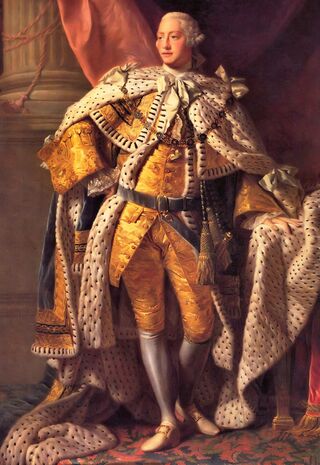Relationships
Autocracy Versus Democracy
A psychological perspective on the nation-state.
Posted June 27, 2022 Reviewed by Michelle Quirk
Key points
- People most vulnerable to authoritarianism are likely to be losing their prescribed place, status, or prestige in a changing social order.
- The psychology of autocratic leaders creates a hierarchical system of power based on dominance and submission imposed by force and violence.
- The psychology of democratic leaders creates a framework for sharing power based on individual equality and unalienable human rights.

July 4th is traditionally a day for Americans to celebrate our independence from an autocratic king and to reflect on America’s democracy, constitution, and continuing aspiration to form “a more perfect Union.” Martin Luther King, Jr., reassured us that “the arc of the moral universe is long, but it bends toward justice.” What can psychology teach us about the historic tensions between autocracy and democracy?
Kurt Lewin, a pioneering social psychologist, famously published research in 1938 that was designed to better understand the rise of authoritarianism. Lewin looked at different kinds of leaders and the “atmospheres” they create. His research considered three such atmospheres: autocratic, democratic, and “laissez-faire.” In the autocratic group, all policies are made by the leader; in the democratic group, all policies are a matter of group discussion; and in the "laissez-faire" group, there was complete freedom for group or individual decisions without any leader participation.
In one of Lewin's experiments with schoolchildren, he found that the autocratic style breeds more aggression and apathy than the democratic style. Aggression, defined as “turning against,” was directed at in-group members or at an out-group. Evidence of apathy was “lack of smiling or joking.” The paradox he found was that some schoolchildren became more passive and withdrawn and some more aggressive in the autocratic group.
Whether in politics, business, academia, or family life, people want their input considered, even if not acted upon. Top-down decision-making, by contrast, can make for a less friendly and less trusting environment.
In Family Life
In practicing psychotherapy for more than 30 years, I have also observed differences in the "atmospheres" (to use Lewin’s term) of more “autocratic” versus more “democratic” family life. The psychology of autocratic leadership and control produces one-sided family dynamics that are based on dominance and submission. The psychology of democratic leadership, in contrast, aims more for cooperation and gives more consideration to each separate individual's needs and autonomy.
All relationships combine elements of love, such as how we take care of ourselves and others, and power, such as how we try to get our own way. In autocratic relationships, which often become coercive, there is more power play than love. At the extreme, the middle ground between people disappears in these relationships. Mutual understanding is lost. The street only runs one way.
In politics, autocrats, like Vladimir Putin, historically cast themselves in an exalted role. This is a defining feature of autocracy and has been called the "cult of personality." The term was first used to describe the deification of Joseph Stalin, who ruled Russia from 1922 to 1952. Similarly, Putin also portrays himself with carefully cultivated and reassuring strong-man images, including outdoors with guns, fishing, and horses.
Vulnerability to Authoritarianism
The social psychologist and psychoanalyst Erich Fromm described the problem of authoritarianism in his classic 1941 book Escape From Freedom. Fromm was writing in a period of great existential anxiety and uncertainty, a time of rapid change, middle-class economic insecurity, and a world war. Democratic norms were broken, and authoritarian regimes established. Fromm asked the following question: Why are some people more willing than others to submit to a reassuring authority figure?
What Fromm observed was that people most vulnerable to authoritarianism are likely to be losing their prescribed place, status, or prestige in a changing social order. Society becomes more competitive when previously excluded groups, such as African Americans in the United States, for example, or women in most societies, are free to compete. This can put stress on those who previously enjoyed a competitive advantage. But it also allows society to expand opportunity and to benefit from the talents of its most able people.
Roots of Democratic Thinking
The roots of democratic thinking, which were applied to the American founding, were influenced by John Locke's critique of a theological and hierarchical view of power bestowed by a heavenly father on kings and their heirs. Locke’s contrasting view to the divine right of kings was that citizens have "natural rights” to life, liberty, and property. Individuals can then join together into a "social contract" with a civil government to protect these rights. Locke’s view of “inalienable” natural rights became fundamental to the American experiment in democracy.
As the cult of personality of such Russian leaders as Stalin and Putin shows, autocracy, in contrast to democracy, creates a hierarchical system imposed by force and violent rule. Autocracies, like that of Putin, are also often called “kleptocracies,” and provide cover for what are, in practice, corrupt criminal financial enterprises.
The American credo of equal citizens with inalienable rights has implications for human rights and is still a radical proposition by modern western historical standards. To fully realize Locke’s theory of a functioning social contract may, however, require more than just a legal framework for sharing of power among different branches of government that can check and balance one another. How can a society best achieve an interpersonal culture for sharing power? Or, in the words of the American Declaration of Independence, how can we best build a society founded on both individual equality and unalienable rights, such as the rights to life, liberty, and the pursuit of happiness?
While the American experiment in democracy has been underway for nearly 250 years, there is an example of a much older, sustained democracy. Melissa Heckler is a teacher who spent the years from 1990 to 2019 taking field notes on her summer breaks living with the Jul’hoansi, who have occupied the northeastern region of the Kalahari Desert in Namibia, Africa, for at least 35,000 years and possess the oldest human DNA.
According to Heckler, author of a study called "Democracy From the Ground Up: Learning to Teach in the Kalahari," the roots of human rights and democracy must be learned in a family and community that provides models for creative problem-solving and decision-making through consensus. She writes the following:
Jul’hoansi offer a non-hierarchical educational model that provides a basis for a successful democracy. Jul’hoansi offer this wisdom to modern democracies: the degree to which a democratic culture will succeed is the degree to which it nurtures and educates its children and preserves its environment.
References
Patterns of aggressive behavior in experimentally created social climates. Lewin, Kurt; Lippitt, Ronald; White, Ralph K. Journal of Social Psychology; Worcester, Mass. Vol. 10, Iss. 2, (May 1, 1939): 271.
Erich Fromm, Escape From Freedom. Available Holt Paperbacks; 1st Edition (September 15, 1994).




